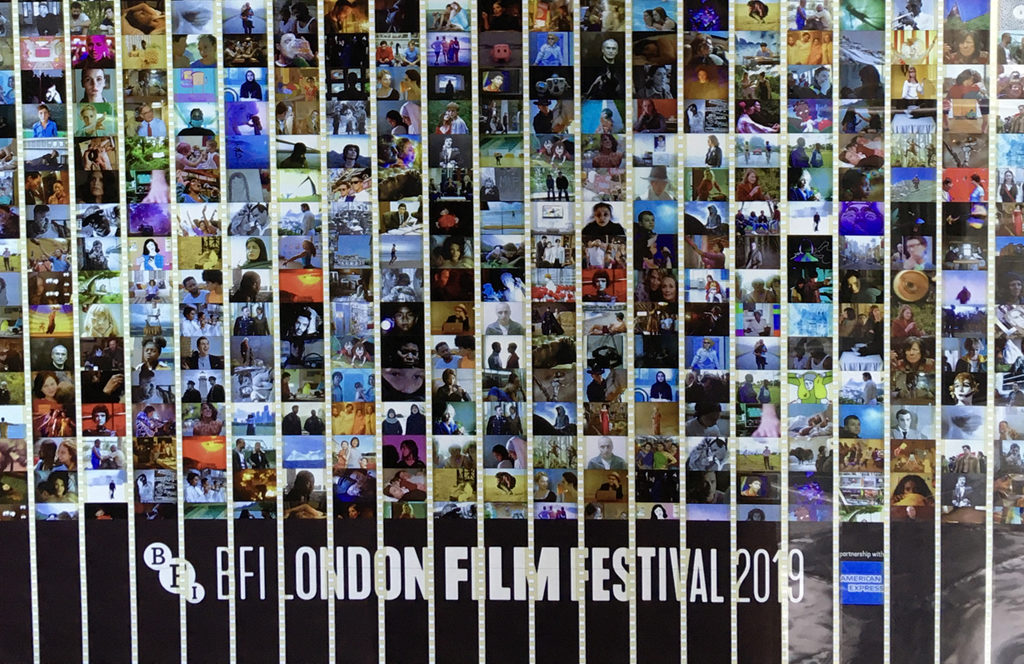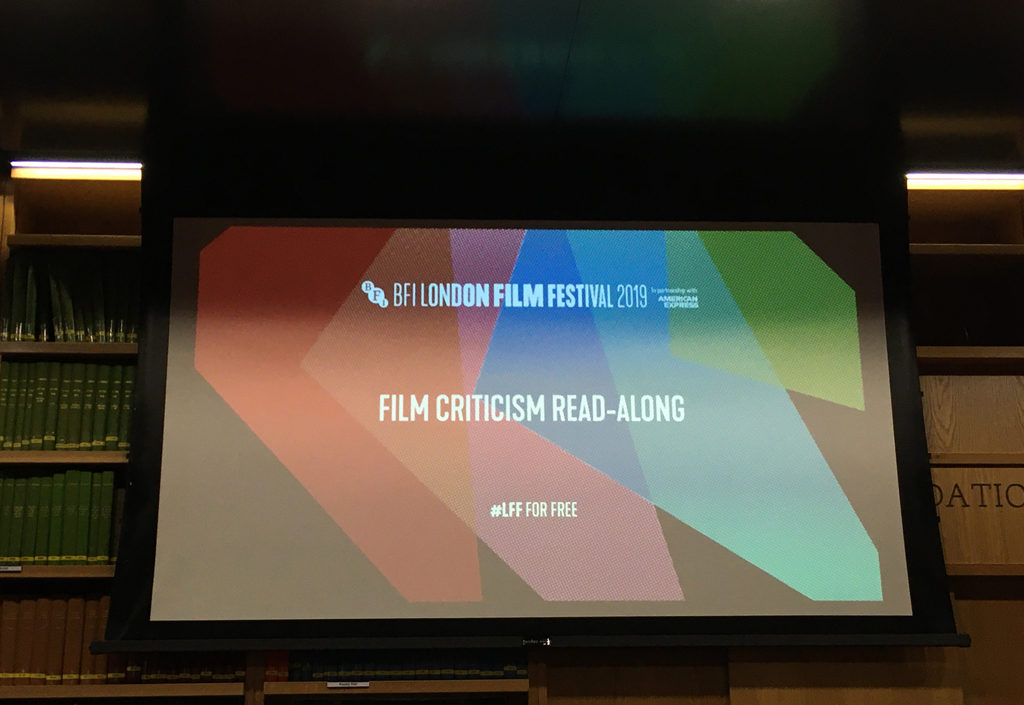A new article of our special column on things for fans at London. Today we talk about BFI and the panel “Film Criticism Read-Along” or the difference between judgemental attitude and professional criticism.
 Leggi questo articolo in Italiano
Leggi questo articolo in Italiano
For the first year, the British Film Institute has organised a series of free events during its London Film Festival. The events, such as talks and presentations are a great way to connect the eager audience and engage in productive conversation amongst film lovers or industry professionals.
Being films’ enthusiasts come with a natural attitude towards criticism, strongly and passionately expressing our opinion about pretty much anything. But are we doing it right? And what is what we should look for in a critical review? Let’s find out!

It’s Sunday morning at London Southbank. Being a Venice Film Festival expert, I arrive more than an hour before the ticket office opens, not really knowing what to expect. And, surprisingly, there is no one around! Years of queuing at Lido have prepared me to deal with buzzing crowds and palpable excitement with people waiting for their free tickets since 6 am in the morning. Nothing prepared me for the silence and lack of living souls around me.
At least it is not raining and the Thames looks magical as usual. The doors open and I register my name at the front desk to attend the free talk “Film Criticism Read-Along” at the BFI Reuben Library. Of course while I wait I get myself a buttered croissant: hugely recommended!

The panel of the one hour talk is hosted by London Film Festival’s Senior Film Programmer, Kate Taylor, and film writers Rebecca Liu (freelancer and author at gal-dem), Matt Turner (writing for MUBI Notebook and Variety, among others), Simran Hans (film critic for the Observer) and Isabel Stevens (production editor of Sight & Sound). For the delight of our host Kate, the room is full of people eager to know more about criticism.
According to the Cambridge Dictionary, criticism is “the act of giving your opinion or judgement about the good or bad qualities of something or someone, especially books, films, etc.“. Which is pretty much what everyone does when leaving a cinema screen… It turns out that criticising art is itself a form of art and we should be more selective with the criticism pieces we read.

According to Simran Hans, a writer’s knowledge of the subject and film landscape is fundamental to select which writer is a keeper. A good sense of humour and a distinctive voice should also be taken into consideration.
Matt Turner reminds us all that there is no set form of reviewing and different approaches to this particular type of writing should be welcomed or at least explored.
Evocative, descriptive and a good use of clear images are some of the qualities a review should have according to Isabel Stevens. She also argues that short, clear sentences are preferable (-immediately reviews article and tries to shorten sentences. Fails to do so-).
On the other hand, Rebecca Liu focuses more on what a writer should do to keep its audience engaged. Rebecca explains that a writer should always keep in mind what his or her readers are interested in and avoid giving the reader any chance to give up half way through the review.
So if you arrived so far: thank you for the effort!
The most interesting take away of the talk is that it is possible to turn a passion into a career and regardless of which writing techniques and styles one’s use, it’s important to find your own voice and let your passion an enthusiasm jump out of the words you are typing.
It is also interesting to note how many young screenwriters and aspiring directors were in the audience, reminding us of the relationship between films’ creators, films’ consumers and films’ critics.

So next time you make a review, try to be mindful of the people who put their passion and effort into producing something that mattered to them. Step up your game and turn a (bit of a) judgemental attitude into professional criticism!
To conclude, I do hope the BFI will continue and increase its programme of free collateral events throughout the London Film Festival. And next year, when I will show up on an early Sunday morning, I look forward to seeing exciting crowds and long queues.
Because it’s not a festival without a bit of chaotic, loud, but sparkling atmosphere.


